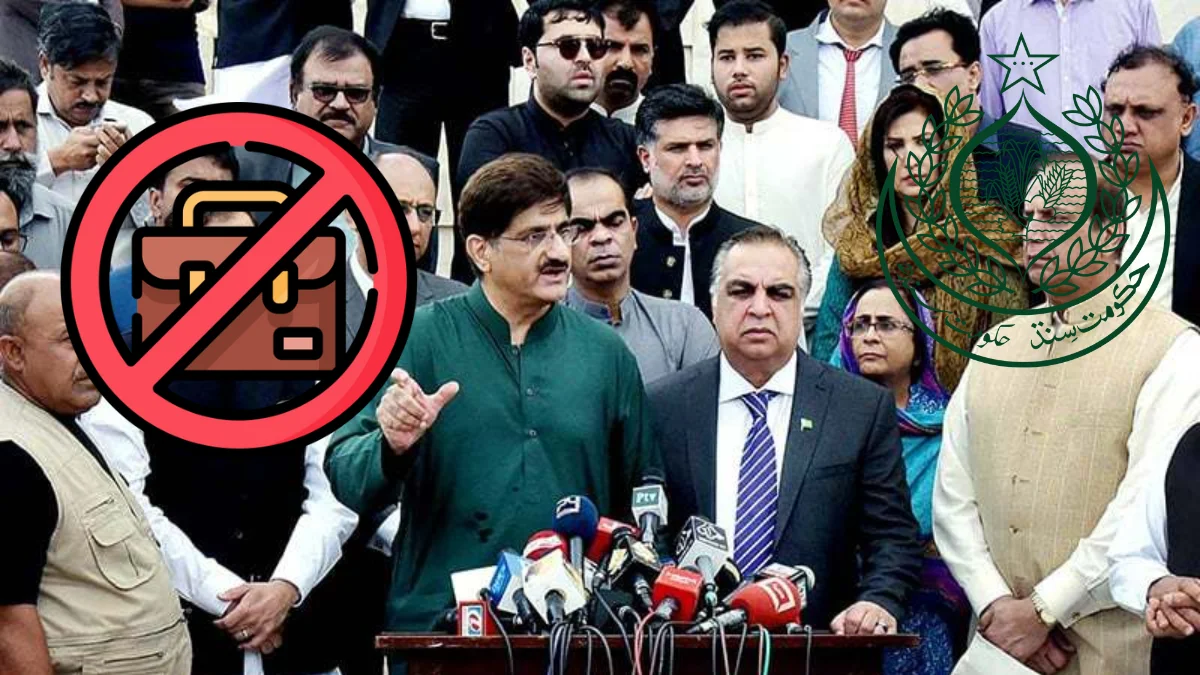KARACHI, Sindh – The Sindh government has officially abolished the quota system that reserved jobs for the families of deceased government employees. This decision, approved by the Sindh cabinet on December 4, 2024, comes in the wake of a Supreme Court ruling declaring such quota policies illegal. A formal notification has now been issued to implement the change.
Supreme Court’s Landmark Decision
On October 18, 2024, the Supreme Court of Pakistan delivered a significant verdict, declaring quota policies and employment packages specifically designed for the children of government employees as unconstitutional. The court mandated both federal and provincial governments to cease the practice of hiring employees’ children without public advertisements and adherence to open merit-based recruitment processes.
The Supreme Court’s ruling specifically nullified the following:
- Prime Minister’s Package for Employment Policy: This package, which offered preferential treatment to the families of government employees, has been declared void.
- Office Memorandum related to the Prime Minister’s Package: Any official communications or guidelines related to the now-nullified package are also invalid.
- Section 11-A of the Sindh Civil Servants Rules 1974: This section, which provided the legal basis for the deceased employees’ quota in Sindh, has been struck down.
Constitutional Basis of the Ruling
The Supreme Court’s decision rests on the interpretation of several key articles of the Pakistani Constitution:
- Article 3: Guarantees the elimination of all forms of exploitation.
- Article 4: Upholds the right of individuals to be dealt with in accordance with the law.
- Article 5(2): Enshrines obedience to the Constitution and the law.
- Article 25: Ensures equality of citizens before the law and prohibits discrimination.
- Article 27: Deals with safeguards against discrimination in services.
The court determined that reserving government jobs for the children or widows of deceased employees without open competition violated these constitutional principles by creating unequal opportunities and undermining the principle of meritocracy.
Implementation in Sindh
Following the Supreme Court’s verdict, the Sindh cabinet moved swiftly to implement the ruling within the province. The December 4, 2024, decision to abolish the deceased employees’ quota means that:
- No further recruitments will be made under the deceased employees’ quota in Sindh. All future government hiring will be conducted through open competition and merit-based selection.
Important Clarifications
The Supreme Court’s ruling includes crucial clarifications:
- No Impact on Existing Employees: Individuals already employed under the deceased employees’ quota will not be affected by this decision. Their employment remains valid.
- Exemption for Martyrs’ Families: The ruling specifically does not apply to the legal heirs of individuals who have been martyred in acts of terrorism. This exception recognizes the unique sacrifices made by these individuals and their families.
Summary of Key Points
- Supreme Court Ruling: Declared quota-based employment for government employees’ children illegal.
- Sindh Government Action: Abolished the deceased employees’ quota in compliance with the court’s decision.
- Constitutional Basis: The ruling is grounded in Articles 3, 4, 5(2), 25, and 27 of the Constitution.
- Existing Employees Protected: Those already employed under the quota will not be affected.
- Exemption for Martyrs’ Families: The ruling does not apply to the legal heirs of those martyred in acts of terrorism.
Impact and Implications
The abolition of the deceased employees’ quota is a significant step towards promoting meritocracy and equal opportunities in Sindh’s public sector. It aims to ensure that government jobs are awarded based on qualifications and competence rather than familial connections. This decision is expected to have long-term implications for the efficiency and fairness of the civil service in the province.

